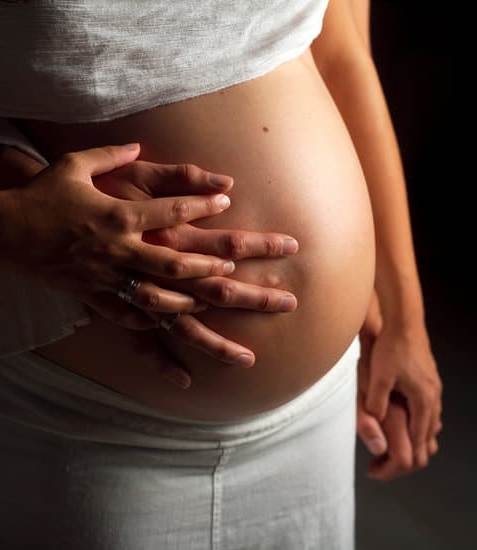“How soon after unprotected can I test for pregnancy” is a common question many individuals ask when they find themselves in a situation where contraception was not used. Understanding the process of pregnancy testing and knowing when it is accurate can provide peace of mind for those who may be concerned about a potential pregnancy.
After unprotected sex, the body goes through a series of changes as it prepares for a possible pregnancy. This includes the release of the hormone hCG, which is the hormone detected by pregnancy tests. Knowing when this hormone becomes detectable can help determine when is the best time to take a pregnancy test.
In this article, we will explore the window of opportunity for accurate pregnancy testing after unprotected sex, explaining the differences between home pregnancy tests and lab-based blood tests, early signs of pregnancy to look out for, factors affecting test accuracy, options for testing, and emotional considerations while waiting for test results. Whether you are facing an unexpected pregnancy or hoping to receive confirmation that you are not pregnant, understanding the process and timeline of pregnancy testing is essential.
So, continue reading to learn more about how to navigate this crucial aspect of reproductive health.
The Window of Opportunity
After engaging in unprotected sex, many individuals may wonder how soon they can test for pregnancy. The accuracy of a pregnancy test depends on the timing of ovulation and the implantation of the fertilized egg. Here is a general guideline for when to take a pregnancy test after unprotected sex:
1. Home Pregnancy Test: Home pregnancy tests are designed to detect the hormone human chorionic gonadotropin (hCG) in your urine. For the most accurate results, it is recommended to wait at least one week after a missed period before taking a home pregnancy test. If you cannot wait that long, some tests claim to provide accurate results as early as 5 days before your expected period.
2. Blood Pregnancy Test: A blood pregnancy test performed at a healthcare provider’s office can detect hCG earlier than a urine test – about 6-8 days after ovulation. These tests are more sensitive and can detect lower levels of hCG, providing an earlier indication of pregnancy compared to home pregnancy tests.
3. Factors Affecting Accuracy: It’s important to note that the accuracy of a pregnancy test may vary depending on factors such as the sensitivity of the test, proper usage, and individual differences in hCG levels. If you are uncertain about when to take a pregnancy test or have irregular periods, it may be best to consult with a healthcare professional for personalized guidance.
Types of Pregnancy Tests
When it comes to testing for pregnancy, there are different options available to determine whether or not you are pregnant. Understanding the differences between home pregnancy tests and lab-based blood tests can help you make an informed decision about which method to choose. Both types of tests have their own advantages and limitations, so it is important to consider your individual circumstances before deciding which test is right for you.
Home Pregnancy Tests
Home pregnancy tests are convenient and easy to use. They detect the presence of the hormone hCG in your urine, which is produced when a fertilized egg implants in the uterus.
These tests are readily available at pharmacies and can be done in the privacy of your own home. Most home pregnancy tests claim to provide accurate results as early as the first day of a missed period, although some may be sensitive enough to detect hCG levels a few days earlier.
It is important to carefully read and follow the instructions provided with the home pregnancy test, as proper usage can affect the accuracy of the results. It is also recommended to perform the test using your first morning urine, as it has a higher concentration of hCG.
Lab-Based Blood Tests
Lab-based blood tests for pregnancy, also known as quantitative hCG tests, measure the exact amount of hCG in your blood. These tests are typically more sensitive than home pregnancy tests and can detect lower levels of hCG earlier on in pregnancy. A quantitative hCG test not only confirms pregnancy but also provides an indication of how far along you may be based on the level of hCG present.
However, lab-based blood tests require a visit to a healthcare provider or clinic for sample collection and may take longer to receive results compared to home pregnancy tests. Additionally, they tend to be more expensive and are not as accessible as home pregnancy tests.
Choosing between a home pregnancy test and a lab-based blood test depends on various factors such as cost, convenience, timing, and accuracy preferences. Consulting with a healthcare professional can help you make an informed decision on which type of test is best for you based on your specific needs and concerns.
Early Signs of Pregnancy
Understanding Early Pregnancy Symptoms
For many women, the earliest sign of pregnancy is a missed period. However, there are several other symptoms that may indicate pregnancy in the early stages. These can include fatigue, nausea or morning sickness, breast tenderness, frequent urination, and heightened sense of smell. It’s important to remember that not all women will experience these symptoms and they can often be attributed to other factors as well.
When to Take a Pregnancy Test
If you suspect that you may be pregnant, it’s natural to want to take a pregnancy test as soon as possible. However, it’s important to wait until at least a week after your missed period for the most accurate results.
Testing too early may result in a false negative due to low levels of hCG (the pregnancy hormone) being present in your urine. If you can’t wait and want to test earlier than this, consider using an early detection home pregnancy test that is designed to detect lower levels of hCG.
Other Factors to Consider
It’s also worth noting that certain medications and medical conditions can affect the accuracy of a home pregnancy test. If you’re unsure about when to take a test or have any concerns about the reliability of your results, it’s best to consult with a healthcare professional for guidance. Remember too that stress and anxiety about the possibility of being pregnant can also manifest physical symptoms similar to those of early pregnancy.
Ultimately, if you suspect you may be pregnant and are experiencing any signs or symptoms, it’s best to consult with your doctor for advice on when and how best to take a pregnancy test.
Factors That May Affect the Accuracy of a Pregnancy Test
When it comes to taking a pregnancy test after unprotected sex, there are several factors that can affect the accuracy of the results. It’s important to understand these variables to ensure that you get the most reliable outcome from your test.
One of the key factors that can impact the accuracy of a pregnancy test is timing. The timing of when you take the test in relation to when you had unprotected sex is crucial. Most home pregnancy tests claim to be accurate as early as the first day of a missed period, but for the most reliable results, it is best to wait until at least a week after your missed period.
This allows enough time for the hormone human chorionic gonadotropin (hCG) to build up in your body if you are pregnant. However, some tests claim to be able to detect hCG before your missed period, so it’s essential to read and follow the instructions carefully.
Another factor that may affect the accuracy of a pregnancy test is how well you follow the instructions provided with the test. Improper use of the test, such as taking it too early or not using enough urine, can lead to inaccurate results. It’s important to carefully read and follow all directions included with your pregnancy test to ensure accurate results.
Additionally, certain medications and medical conditions can also affect the reliability of pregnancy tests. For example, fertility drugs containing hCG can interfere with pregnancy test results, as can certain medications used for treating infertility. It’s important to consult with a healthcare professional if you have any concerns about how these factors may impact your pregnancy test results.
| Factors | Impact on Pregnancy Test Accuracy |
|---|---|
| Timing | Crucial for accurate results |
| Proper Use | Improper use could lead to inaccurate results |
| Medications and Medical Conditions | Can interfere with test accuracy |
Options for Testing
When it comes to testing for pregnancy after unprotected sex, there are a few options available. Understanding where to go for a pregnancy test and how to do it at home can provide peace of mind and clarity in uncertain times. Here are the different options for testing:
1. Home Pregnancy Tests:
Home pregnancy tests are easily accessible at most drugstores and pharmacies. These tests work by detecting the presence of human chorionic gonadotropin (hCG) in the urine, which is a hormone produced during pregnancy. It is important to follow the instructions carefully and wait until the appropriate time after unprotected sex to take the test for accurate results.
2. Lab-Based Blood Tests:
If you prefer to have a healthcare professional administer the test, you can visit a clinic or doctor’s office for a lab-based blood test. This type of test also measures hCG levels but is typically more sensitive and can detect lower levels of hCG earlier than a urine test. Blood tests are also beneficial if you have irregular periods or medical conditions that may affect the accuracy of a home pregnancy test.
3. Planned Parenthood or Women’s Health Clinics:
For those who may not have access to affordable healthcare or want additional support, Planned Parenthood or women’s health clinics offer pregnancy testing services at low cost or even for free in some cases. These facilities also provide counseling and resources regardless of whether the test is positive or negative.
Emotional Considerations
After engaging in unprotected sex, it is common for individuals to experience anxiety and uncertainty regarding the possibility of pregnancy. It is important to understand the emotional considerations that come with waiting for test results. The fear of an unexpected pregnancy can be overwhelming, and it is crucial to find healthy ways to cope with these emotions during the waiting period.
One of the most effective ways to manage anxiety while waiting for test results is to focus on self-care. Engaging in activities that bring relaxation and peace of mind can help alleviate the stress associated with the situation. This could include practicing mindfulness, meditation, or yoga, as well as spending time with loved ones and seeking emotional support from trusted individuals.
In addition, it may be helpful to educate oneself about the options available in the event of a positive pregnancy test. This can help individuals feel more prepared and empowered, reducing some of the anxiety associated with uncertainty. There are various resources available that provide information on pregnancy options, including counseling services and support hotlines.
| Anxiety Management | Pregnancy Options |
|---|---|
| Focusing on self-care activities like mindfulness and meditation | Researching available pregnancy options for empowerment |
| Seeking emotional support from trusted individuals | Exploring counseling services and support hotlines |
Finally, it is essential to remember that feelings of anxiety during this waiting period are natural. If at any point these emotions become overwhelming, seeking professional guidance from a healthcare provider or mental health expert can provide substantial relief. Understanding one’s emotional state while waiting for test results is crucial in managing feelings of anxiety and uncertainty effectively.
Next Steps
After taking a pregnancy test, the result will likely prompt a range of emotions and considerations. If the test is positive, it is important to schedule an appointment with a healthcare provider as soon as possible to confirm the pregnancy and begin prenatal care. This is an exciting time, but it can also be overwhelming, so seeking support from loved ones and accessing resources for expectant mothers can be beneficial.
On the other hand, if the test is negative and you were hoping for a positive result, give yourself permission to feel the disappointment or sadness that may come with it. It’s important to remember that many factors can affect the accuracy of a pregnancy test, so it may be worth testing again in a few days or weeks if your period still hasn’t arrived and you are experiencing symptoms of pregnancy.
Regardless of the test result, there are numerous resources available for guidance and support. From healthcare providers and community organizations to online forums and educational materials, there are many avenues for information on reproductive health and family planning. Remember that you don’t have to navigate this journey alone – reach out for support if you need it. And always remember that it’s okay to ask questions like “how soon after unprotected can I test for pregnancy“.
Frequently Asked Questions
How Soon Will a Pregnancy Test Read Positive?
A pregnancy test can typically read positive about 10-14 days after conception. This is usually around the time of a missed period, but some tests may be able to detect pregnancy earlier.
How Many Days After Having Unprotected Can I Test for Pregnancy?
It is recommended to wait at least 7-10 days after having unprotected sex before testing for pregnancy. Testing too early may result in a false negative result due to not enough time passing for the hormone levels to be detectable.
Can I Take a Pregnancy Test After 7 Days?
While some pregnancy tests claim to be able to detect pregnancy as early as 7 days after conception, it is generally more accurate to wait a full 10-14 days after conception before testing. This allows for higher accuracy and reduces the chances of a false negative result.

Welcome to my fertility blog. This is a space where I will be sharing my experiences as I navigate through the world of fertility treatments, as well as provide information and resources about fertility and pregnancy.





